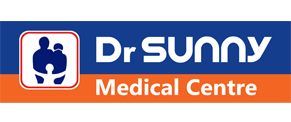
Is Your Child Doing What They’re Supposed To Do?
You may be excited to see your child roll over for the first time or take their first step without any support, but sometimes all these important milestones are delayed. These delays can be a sign of something more serious, so it is important to talk to your pediatrician about them.
Major Milestones during first few years
Before going through the milestones, you should remember that every child is unique and develops at an individual pace. Read on to know about some common milestones for each age period:
Birth to 18 months
There are four key areas of development including physical development, cognitive development, language development and social-emotional development. By the time your child reaches 18 months of age he/she would have learned to walk, may even climb a step or two, knows how to say few words, can wave bye, may have tantrums, will learn to use some basic things like a spoon.
18 months to 2 years
By 24 months of age your child may use simple two-word phrases, runs, can draw lines, enjoys play dates with other children.
Act early
If you are concerned about your child’s development don’t wait as it can worsen the situation. Acting early on developmental concerns can make a real difference for your child and you.
Talk to your Pediatrician
If you have concerns about your child’s development you can talk to your pediatrician. Your pediatrician may ask some additional questions or ask you to fill out a complete screening questionnaire online or on paper. Your inputs are important as based on the answers the pediatrician will decide what kind of treatment is required to help the child. You can also take the help of specialists including a developmental pediatrician, child neurologist, child psychologists or psychiatrists.
Common Therapy for Developmental Delays
There are several programs to help families to overcome the developmental delays. These services are specially designed to meet a child’s individual needs. For example if a child is having trouble with fine motor skills, visual motor skills such as picking up small objects or feeding himself, he/she may be referred to an occupational therapist. If a child is having trouble in speaking or understanding language, he/she may be referred to a speech therapist.
